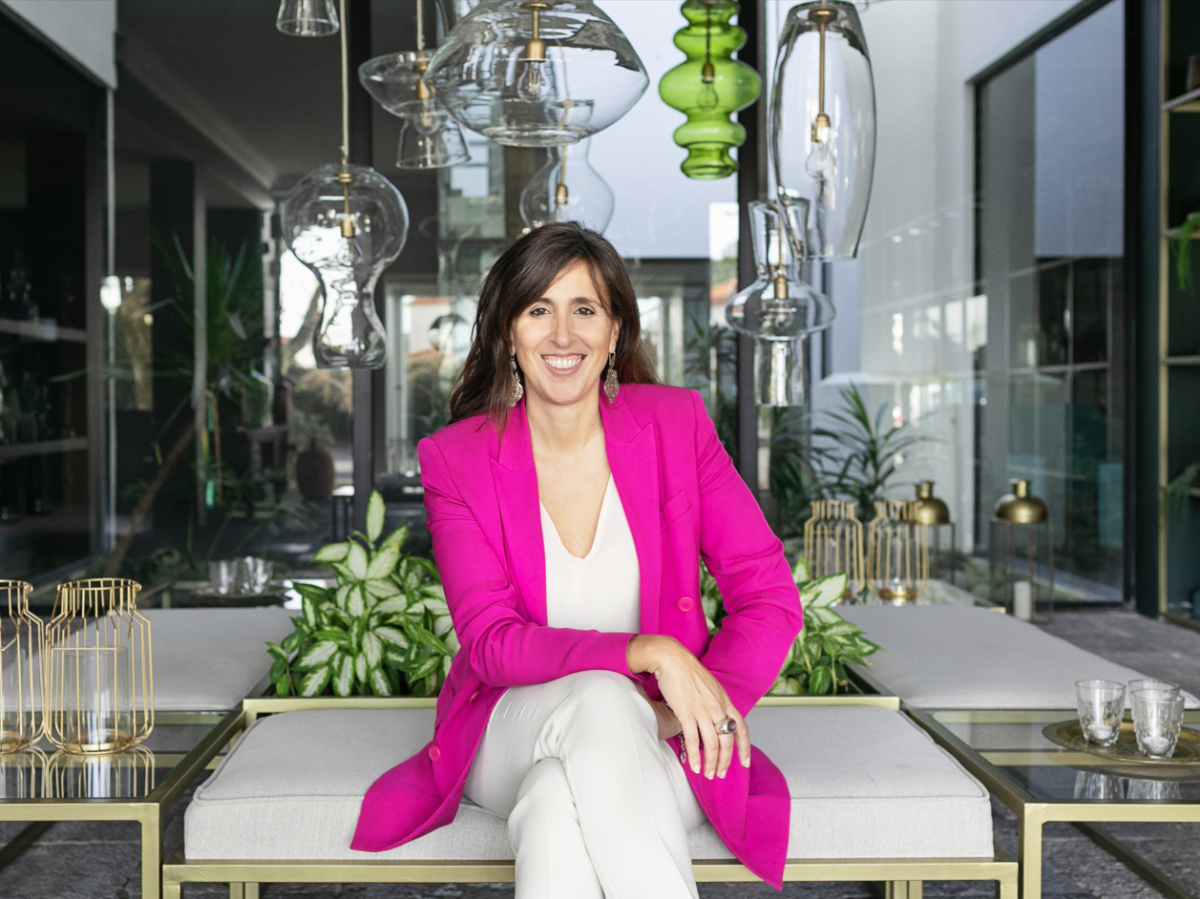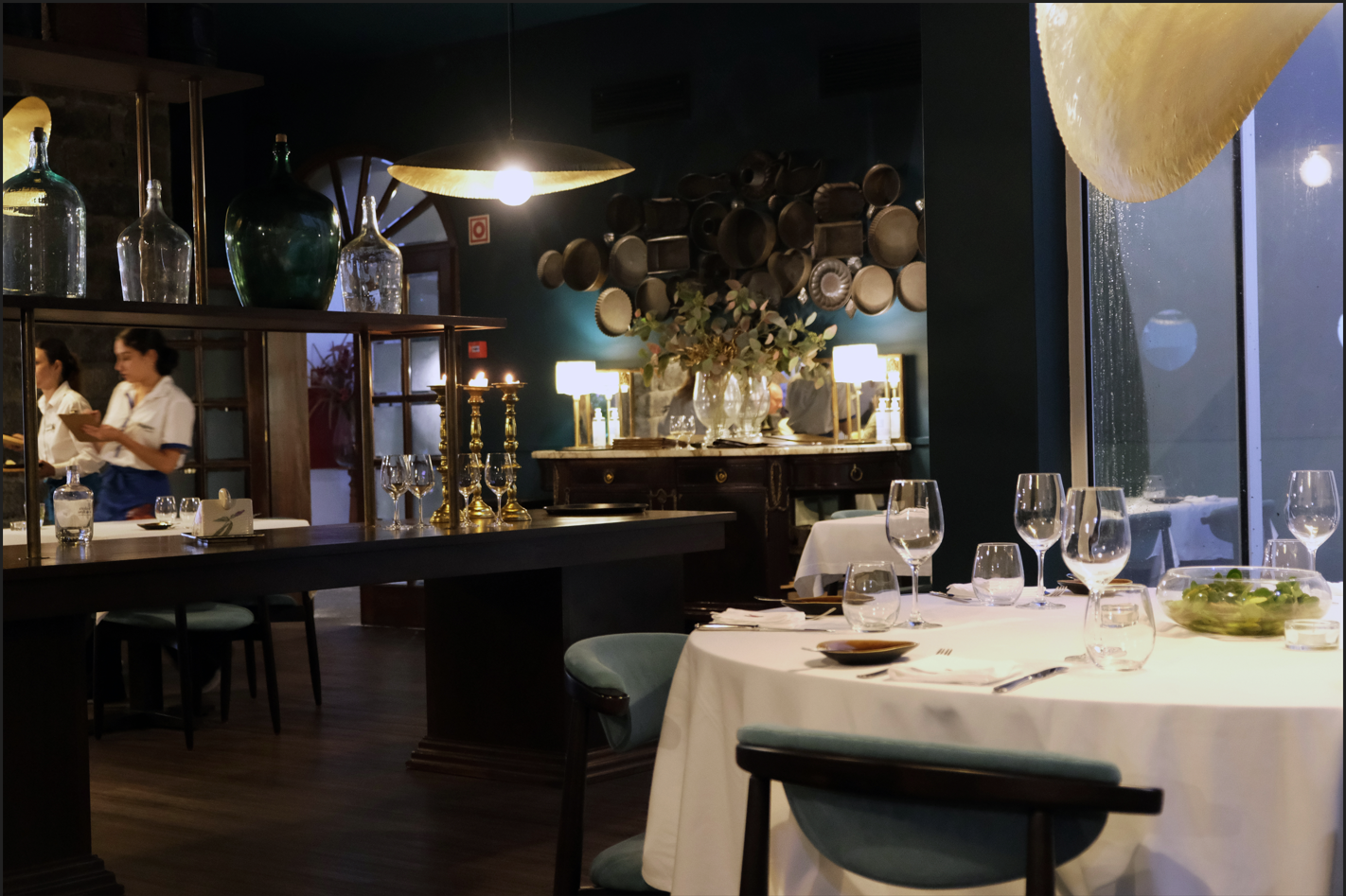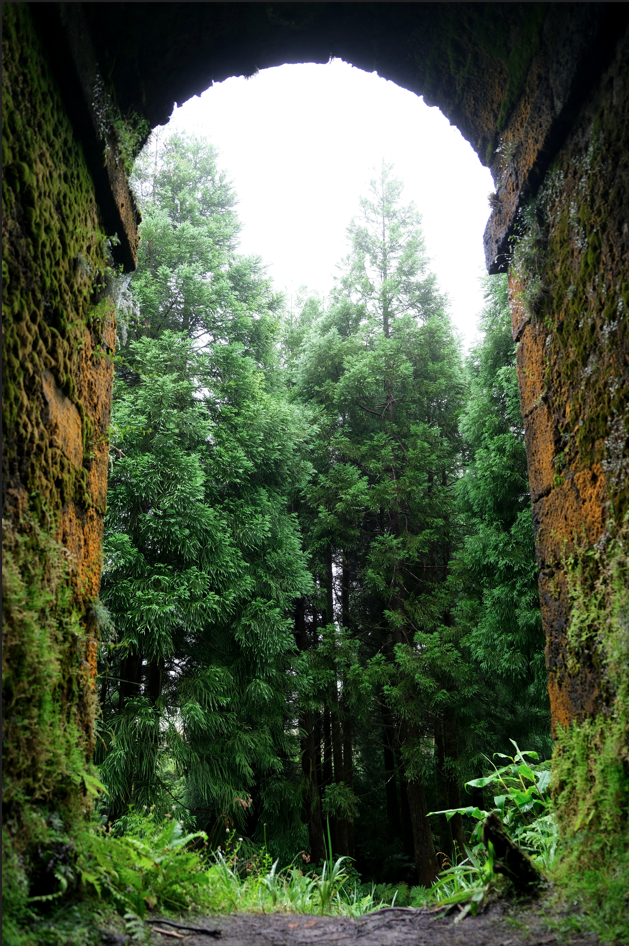In this new column, travel, food and culture writer Karina Janø leads the way across Portugal in search of the best in food, overnight stays and experiences - exploring the best ways these three elements intertwine with key elements of Portugal and meeting the people behind!
Forces of nature
Today we travel to the Azores - the wild, beautiful archipelago in the middle of the Atlantic, steeped in history and rich in local produce and welcoming people. The islands have grown steadily in popularity, and on São Miguel, we meet a whirlwind of a woman who has hospitality in her blood: Joana Damião, the award-winning hotelier behind one of the island’s most inspiring hotels, Senhora da Rosa.
For much of the 20th century, particularly under the Estado Novo dictatorship (1933–1974), Portugal was deeply patriarchal. Women were expected to stay at home and needed a husband’s permission to work. Although traces of this culture remain, modern Portugal has seen huge social, cultural, and legal shifts. And it’s interesting to look at this from a hospitality perspective. From chefs like Marlene Vieira to winemakers such as Susana Esteban, mixologists like Flavi Andrade, sommeliers such as Joana Reis, and Elisabete Ferreira - the first woman to be named World’s Best Baker- Portugal is ripe with women excelling and changing the face of food and hospitality at the moment, easing up on the male domination of the business. And it makes sense: who doesn’t think their mother’s food is the best? Who has traditionally cleaned, decorated and made guests feel welcome in their home? For winemakers, women actually have a sharper sense of smell, giving them an edge, and don’t even get me started on the attention to detail…
A great example of a woman who has kicked in some doors in the world of hospitality is Joana Damião. Named Best Hotel Manager in Portugal last year, she runs the Senhora da Rosa Hotel, a restored 18th-century quinta just outside Ponta Delgada. The property blends tradition and nature with sustainable luxury: cosy rooms, stylish public spaces, wellness programmes inspired by Azorean botanicals, and a warm, welcoming atmosphere. The soft, feminine values are palpable, and upon arrival, I immediately feel very welcome.
A lifelong passion
Hospitality runs deep in Damião’s veins. As a child, she helped at her parents’ hotel on this very same property instead of heading to the beach with her friends. Starting at reception - “the heart of the hotel,” she says - she went on to build a stellar career at some of the Iberian Peninsula’s finest hotels, including the Sheraton Lisbon and Ritz-Carlton Sintra. But in 2015, pregnant with her son, she decided to return home. “I wanted to raise my son here. In Lisbon, it was impossible to balance work and motherhood.”
Her parents’ original hotel had gone bankrupt in 2010 amid the financial crisis, and attempts to attract investors had failed. But tourism was starting to grow in the Azores, and Damião saw an opportunity. After managing another project and renting out a small apartment, a chance conversation with a government official led her to consider buying back the family property. With European funds, bank loans, and three years of paperwork, she finally did - purchasing it in 2019.
Following a €6 million renovation delayed by the pandemic, Senhora da Rosa reopened in 2021. Since then, business has grown steadily, and Damião has added a second boutique property across the street. Today, she leads the company as majority owner alongside three partners and a board of four - all women, by coincidence. “I like mixed teams,” she says. “But there were simply no male candidates.”
Breaking barriers
Being a woman in a traditionally male-dominated industry is still challenging. “It’s not easy,” Damião admits. “When you’re the boss, some suppliers or employees don’t like it. The same thing happened when I presented the project to banks. It’s a cultural problem.”
Despite an impressive résumé - including being the youngest sales and marketing manager for one of the world’s top hotel brands and being recognised as the best director of sales and marketing of Europe, the Middle East and Africa in 2012 - launching her own business meant starting from scratch. “People assumed I was too young, too inexperienced. You have to prove yourself - especially as a woman. But now, after eight years, I feel I’ve earned recognition by both the local community and the wider industry.”
Her formula for success? “Passion. I love what I do.” She also credits hard work and attention to detail: “I’m teaching my team to notice everything: the smell, the music, the temperature. I can’t do everything myself.”
Rooted in family history
Although thoroughly modernised, the hotel remains steeped in family heritage. The restaurant occupies the oldest part of the estate - once a carriage house from the 1870s - while the family chapel dates to 1897. Shelves are lined with heirlooms: century-old tea tins, ceramics from her grandmother, and other treasures. When I ask her where one might get her hands on ceramics like that, she immediately hooks me up with a stop at the old factory the next day, and I think this is my kind of woman.
“My grandparents’ and parents’ homes are nearby, and mine is over there. I walk through the garden to work. We kept the name in their honour - friends always said, ‘Let’s go to Senhora da Rosa,’” she says of the place.
New features include a warm plunge pool inside a protected, historic pineapple greenhouse and two private wooden cabanas in the garden. The waiter brings us more Azorean wine and limpets - the seafood you cannot miss when visiting these islands - followed by amberjack ceviche and shrimps. And Damião is on top of it all. “Hospitality is in our blood and we have always hosted a lot,” she says. “We want guests to feel like they’re in our home. Food is part of our heritage, and we love bringing those memories back. The cod puff recipe is from my grandmother, and my aunt is teaching my team to cook.”
A sense of place
For Damião, preserving the island’s identity is vital. “Big hotels don’t belong here. They would destroy the character of the place and I think tourism needs regulation.” Sustainability is central to her business: rainwater irrigates the gardens, solar panels supply energy, and bath amenities are made locally from seasonal flowers and fruit. “We also host events like Christmas markets to connect with the community. Sustainability isn’t just environmental - it’s economic and social too.”
She wants guests to see the hotel as a gateway to the island and an integral part of it. “Our concept is tradition and nature. We’re on a farm, and São Miguel is the green island and we encourage our guests to explore and connect with the local culture.”
The next day, Damião sends me out to see the island: I race up the volcanic slopes in a buggy to view the Sete Cidades lagoons, tour a tea plantation, browse ceramics at the historic Cerâmica Vieira factory, and soak in the 42-degree thermal waters of Dona Beija. I see where the locals cook meals in the warm volcanic soil, and when I return to Senhora da Rosa, it’s clear that this is a place worth lingering.
Até já!












